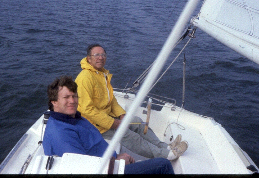I have been creating a huge body of work on the topic of organizing genealogy records, a topic that has just about always interested me. I have given presentations on the topic of organization in the past, usually titling it, “Information Overload.” Information is what we are trying to organize, after all. Genealogists have collected and generated information in the form of paper, for the most part, for decades. And now that we have digital capabilities (or at least most of us do) we are probably all working with a hybrid of systems – part filing cabinet, boxes, or three-ring binders, and part computer files – JPEGs, PDFs, .Docs, some created in databases, and some audio or video files. The electronic files could be on our personal computers, our mobile devices, or online.

2012 FGS Conference Logo
I am working toward presentation of a lecture at the upcoming, 2012 Federation of Genealogical Societies’ Conference in Birmingham, Alabama, “Indians, Squatter, Settlers, and Soldiers in the ‘Old Southwest,’” to be held August 29-September 1. My lecture, “Information Overload: Organizing Your Genealogy Records,” is scheduled for the afternoon of Thursday, August 30, and is intended for the beginner level genealogist. Download the Conference Brochure here: fgs_2012registrationbooklettopress.
In anticipation of my need to organize (”reign in”) the myriad of ideas and techniques that I have assembled on the topic, I scheduled a preliminary presentation for the Tulsa City-County Library’s Family History Month, organized by Kathy Huber, MLS, the genealogy librarian, for Saturday, July 7 – last Saturday. The turnout was overwhelming. There were 150 attendees for this afternoon session of a Saturday for which two other programs were also presented – all were appropriate for all levels, but helpful for even those who had been researching their families for decades. I saw faces of some that I know are not new to genealogy, but from a show of hands there were probably at least 30 there who were newcomers. Frossard Auditorium at Hardesty Library was packed – making for the kind of venue where, instead of having an empty chair between you and the stranger next to you, there is hardly an empty seat. This was, I think, indicative of a desire of many to get started, especially with the current attraction and potential effectiveness of online searching – something that was certainly not a part of my own beginning interested in my family’s history. Of course the cool library (take that either way) was the place to be on such a hot, Oklahoma day, and it accounted for some attendance, but so did the scores of area residents, as well as those who made the drive from outside Tulsa, because they had experienced TCCL’s successful programming during its Family History Month in previous years. Download a PDF guide to July’s Family History Month programming here.
Because of the crowds, not everyone present received the handout, and so Liz Walker of the Genealogy Center has made a PDF version available on the Genealogy Center’s section of the TCCL website. To download the file, click on the link to Information Overload. You’ll have the option to print it out, or read and save it on your computer or mobile device – just as you often will have with your genealogy records going forward.
During the presentation, which is in definite need of improvement before the FGS Conference, I mentioned a plan to post some links here on my blog. I had been developing a list using my account on Evernote.com, posting the links and a brief description into a “note” in Evernote as I encountered them as I followed various leads online. Here is the list:
Comparison of online backup solutions
www.shoeboxed.com – service that scans your documents, sorts them and makes the archives available at Evernote.com.
Webinar – ALCTS (Association For Library Collections and Technical Services)
Library of Congress – Digital Preservation – Personal Archiving
Nancy Shively’s new blog – I recommend that you follow Nancy’s blog. Her writing and the information she shares combine to make her blog a pleasure to read. She recently finished her term as the Family Tree Firsts blogger for FamilyTreeMagazine.com and was an official blogger for RootsTech 2012.
I hope to write again soon with tips on organization of your genealogy records. To sign up to receive an email of future blog posts, enter your email address in the second box on the left (Feed My Inbox will be sending the emails).


